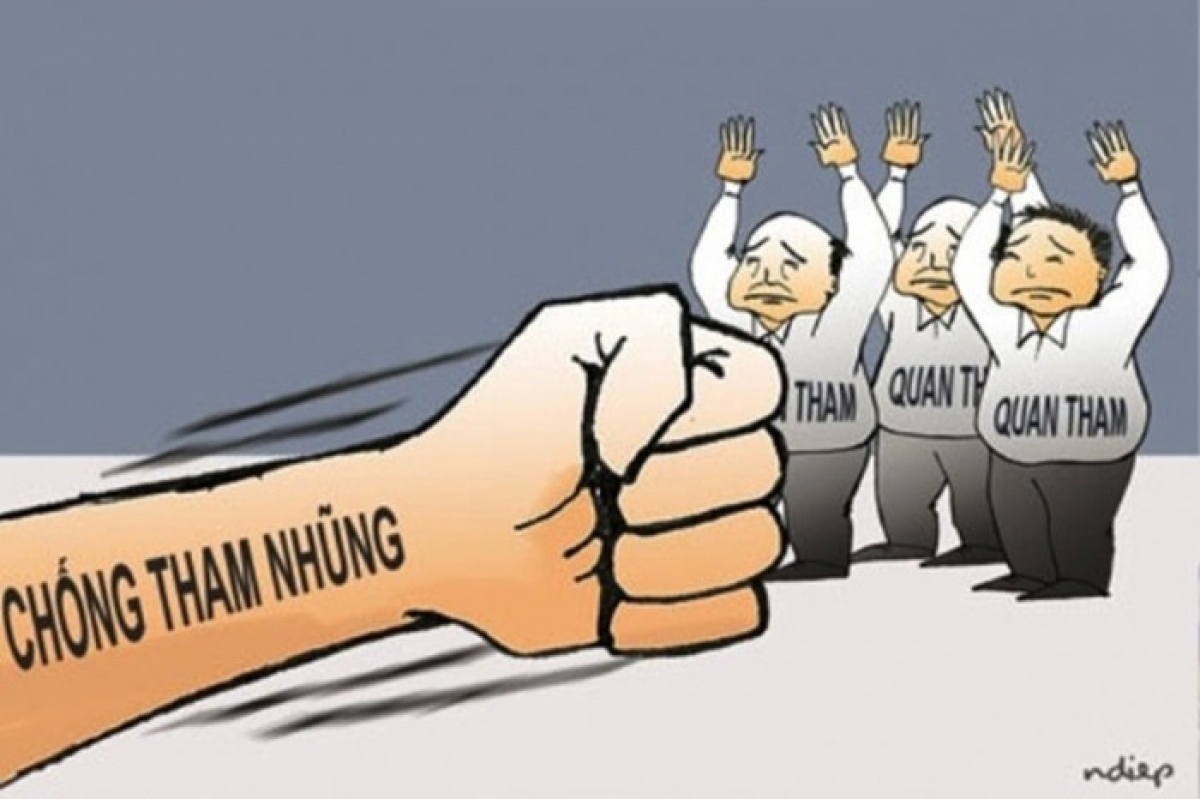Slanderous allegations about anti-corruption in Vietnam fall into oblivion
VOV.VN - Several hostile forces have recently made unfounded allegations relating to the ongoing anti-corruption drive in Vietnam, stating that the fight initiated and led by the Communist Party is having a negative impact on the local economy.

Radio Free Asia and Voice of America (Vietnamese version) both reported that the widespread anti-corruption drive is currently paralysing many local economic transactions which may impact foreign direct investment inflows and reduce exports. They cited Reuters, saying that, “while fighting bribery is broadly considered positive in the long-term, short-term disruptions can paralyse business, especially if enforcement is seen as opaque and politically driven.”
Some organisations and individuals that are living in exile and are hostile towards the country immediately rallied in support of this lie by sharing stories on social media, thereby distorting the nature of the corruption fight and discrediting Vietnam in the international arena.
However, their arguments are groundless and are being made for unscrupulous reasons as opposed to being based on facts. Apparently, corruption directly affects stability and development in all aspects of social life, including economics. It also threatens social stability and security, and infringes upon democratic institutions, moral values and justice. Without prompt prevention measures taken, corruption can develop into a particularly serious threat to socio-economic development, thereby threatening the regime’s survival.
The Party and State are therefore keen to maintain that those who are corrupt must be held accountable by the law for their actions. Simultaneously, the State strives to create a healthy, highly competitive, and conducive investment environment for both public and private sectors to operate over the long term, with their efforts already being recognised internationally. Due to these factors, it cannot be said that because of the anti-corruption drive, many individuals are afraid to undertake projects, affecting the investment environment and supply chains in the economy.
The fight against corruption has captured great attention from all countries across the globe, especially after the UN General Assembly issued the UN Convention against Corruption on December 9, 2003. Indeed, countries and organisations such as the EU, the United States, China, the Republic of Korea, Japan, and those in Southeast Asia have all ramped up the fight to create a great impetus for economic growth and social development. Indonesia has even set up a hotline to encourage people to directly report pressing issues of concern, coupled with establishing the National Anti-Corruption Commission (KPK) and the President’s advisory group on anti-corruption.
In Vietnam, the anti-corruption drive led by the Communist Party and supported by people has made progress and yielded initial encouraging results. Over the past 10 years, Party committees and inspection committees at all levels have moved to discipline more than 2,700 Party organisations, with nearly 168,000 Party members involved, of whom more than 7,390 Party members have been handled for their role in corruption activities.
Most notably, over 170 senior officials under the management of the Party Central Committee have been disciplined. This includes more than 30 members and former members of the Party Central Committee and more than 50 military general officers. Since the 13th National Party Congress held in early 2021, approximately 50 high-ranking officials have been reprimanded, including more than 10 members and former members of the Party Central Committee, along with 20 officers of the general rank.
During a recent meeting held in Hanoi, Party General Secretary Nguyen Phu Trong, who is also head of the Central Steering Committee for Corruption and Negative Phenomena Prevention and Control, said enhancing the fight has helped the Party to be stronger and the people to increase their trust in the regime. The General Secretary went on to refute slanderous allegations that this is an internal purge or an internal struggle among various factions of the Party. Though this is an arduous campaign, Trong also affirmed there is a ‘no-go area’ in combating corruption and the anti-corruption drive is an irreversible trend in Vietnam.
Over the years, hostile forces have always given reasons to criticise the country over its fight against corruption in a vain attempt at tarnishing the nation’s image in the eyes of international friends. With the fight being accelerated and encouraging results being recorded in the country, such slanderous allegations will undoubtedly fall flat.


